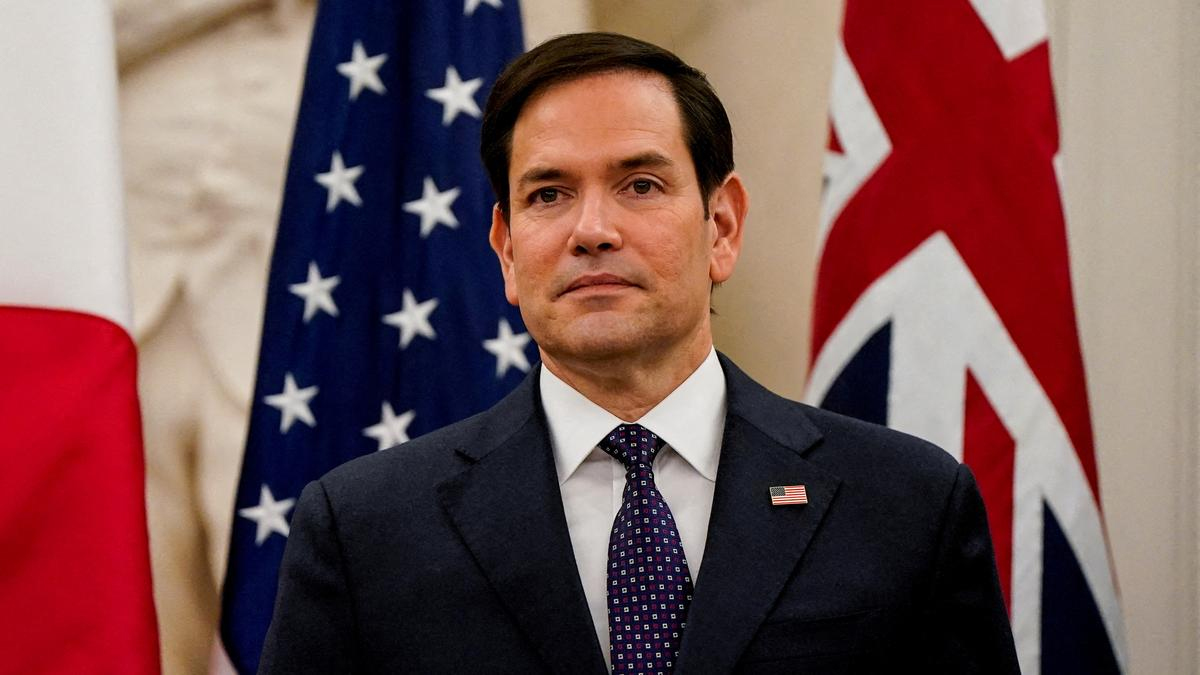WASHINGTON, Feb 1: Secretary of State Marco Rubio is set to embark on his inaugural foreign trip this weekend, targeting Central America to address President Donald Trump’s primary focus – addressing illegal immigration – while also asserting the US’s desire to regain control of the Panama Canal, despite significant opposition from regional leaders.
This destination is somewhat unconventional for the first journey of America’s top diplomat, as previous secretaries have typically chosen Europe or Asia for their initial trips.
The choice not only signifies Rubio’s personal interest in the region, being the first Hispanic to hold such a senior Cabinet position, but also aligns with the Trump administration’s strategy to direct foreign policy efforts primarily towards its own hemisphere.
“It’s no coincidence that my first trip as secretary of state will keep me within our hemisphere,” Rubio conveyed in an op-ed for The Wall Street Journal on Friday.
Reducing immigration and combating drug trafficking are critical aspects of this agenda, alongside another significant aim: diminishing China’s expanding influence in the Western Hemisphere, which includes reasserting US control of the Panama Canal—a structure handed over to Panama in 1999, a move resisted strongly by Panamanian leaders.
Rubio highlighted the pressing issues of mass migration, drug-related crime, and antagonistic policies from nations such as Cuba, Nicaragua, and Venezuela. “Simultaneously, the Chinese Communist Party exploits diplomatic and economic means—like the Panama Canal—to undermine the U.S. and transform sovereign nations into client states,” he stated in the Journal piece.
Rubio’s first stop on this five-nation tour will be Panama, where President José Raúl Mulino has made it clear that there will be no negotiations about the canal’s ownership, expressing hope that Rubio’s visit would focus on cooperative matters such as migration and drug enforcement.
“It’s simply impossible for me to negotiate,” Mulino asserted on Thursday. “The canal is Panamanian property.”
Nonetheless, Rubio intends to communicate Trump’s objectives clearly. In a conversation with SiriusXM host Megyn Kelly on Thursday, he emphasized that Trump’s push to reclaim the Panama Canal is motivated by genuine national security concerns over increasing Chinese involvement in Latin America.
“We are going to discuss that issue,” he indicated. “The president has been quite explicit in his desire to govern the canal again. Naturally, the Panamanians are not particularly keen on that proposition. That message has been made very explicit.”
Concerns regarding Chinese investments in ports and related infrastructure along both the Pacific and Caribbean sides of the canal render it vulnerable to foreign influence, Rubio articulated.
He warned that “should China decide to impede operations in the Panama Canal, they certainly could,” thereby breaching the 1977 treaty signed by former President Jimmy Carter, which led to the U.S. relinquishing control.
Although Mulino has rejected any talks regarding ownership, some believe Panama might be amenable to a deal where canal operations are stripped from the Hong Kong-based Hutchison Ports company, which has enjoyed a 25-year no-bid extension to oversee them. An audit is underway to assess the validity of that extension and may prompt a bidding process.
It remains uncertain if Trump would find a transfer of operations to an American or European firm sufficient to meet his broader demands regarding the canal.
“In some respects, Trump is pushing at an open door,” noted Ryan Berg, director of the Americas program at the Center for Strategic and International Studies, a think tank in Washington. “However, it will be dependent on how clearly he defines his demands.”
“There’s been a lot of intense rhetoric and it’ll be up to Rubio to clarify everything,” Berg added, acknowledging that a compromise might be within reach, “but we will have to determine whether he is genuinely serious about reclaiming it. If so, then nothing less will satisfy him.”
Rubio is scheduled to arrive in Panama on Saturday, with meetings planned for the following day with Mulino and the canal administrator. Afterward, he will proceed to El Salvador, Costa Rica, Guatemala, and the Dominican Republic.
His arrival coincides with the resumption of visa processing at the U.S. embassy in Bogota, Colombia, which had been temporarily halted following the Colombian government’s refusal to accept two flights containing Colombian deportees from the United States. (AP)


Leave a Reply